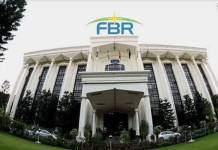ISLAMABAD, Feb. 25 (DNA): Pakistan’s “Oil Refinery Policy 2023” has finally been presented to the Cabinet Committee for approval in the form of a draft.
This development marks a significant step towards the planned establishment of an oil refinery plant worth US$4.5 billion by a Chinese company in Gwadar, as well as the construction of an oil refinery plant worth over US$10 billion by Saudi Arabia and the UAE in Hub, Balochistan.
According to Gwadar Pro, upon its formal approval, the cabinet committee is expected to provide tax exemptions and incentives to stakeholders and investors in the oil industry.
The refining policy is divided into two components, one concerning the existing local refineries, and the other regarding investments in new refineries across the country.
The policy has established a blueprint for exemption from an array of taxes and duties.
This includes customs duty, surcharges, withholding taxes, general sales tax, any other ad valorem tax, or any other levies on imported equipment or materials intended for use in the refinery, without any prerequisite certification by the Engineering Development Board.
Furthermore, the policy stipulates that the federal government will aid in the acquisition of comparable exemptions from provincial and local taxes.
Exemptions will be available to foreign contractors or sub-contractors for the execution of services related to construction, operations, and engineering performed in Pakistan with respect to provincial and federal taxes.
Refineries will be exempt from the withholding tax requirements under the Income Tax Ordinance 2001 for payments made to non-resident individuals, including contractors or their associates, for the acquisition of machinery or equipment to be installed in the project.
According to the draft policy, if the pricing regime is deregulated between January 1, 2023, and December 31, 2028, refineries will be allowed to retain the prevalent customs duty in the ex-refinery price.
However, if the existing pricing mechanism or regulated pricing regime remains applicable after December 31, 2028, the applicability of prevalent customs duty to the ex-refinery price of finished products will be reviewed.
In the event that the pricing regime is deregulated after December 31, 2028, refineries will be free to set prices for their products. Additionally, customs duty above 10% will be returned to the Oil and Gas Regulatory Authority (Ogra) under the Inland Freight Equalisation Margin (IFEM) framework.
An official from OGDCL told Gwadar Pro that no new refinery has been established in Pakistan over the past 40 years, and that the country needs a new plant with a capacity to process 400,000 barrels of crude per day to meet its high demand for petroleum.
Upgrading existing refineries could also increase their installed capacity to meet consumer needs.
Currently, Pakistan’s oil refineries are meeting 55% of the annual demand for petroleum products and saving foreign exchange of US$1 billion.
They use approximately 70,000 barrels of local crude and condensate per day and claim to provide more than 100,000 direct and indirect employment opportunities while making a reasonable contribution to the national exchequer and GDP.
In addition to approving incentives for upcoming oil refineries from China and the Gulf region, the Pakistani government is urging the five local refineries to upgrade, requiring significant capital investment.
Furthermore, to meet the country’s demand, which is currently being met through imports, an additional refinery with a capacity of 300,000 to 400,000 barrels per day and a petrochemical facility costing US$10-15 billion is required.

















